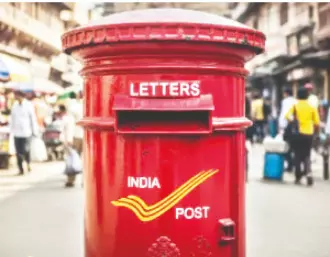End of an era as registered post bows out

Lucknow: For 171 years, the knock of a postman carrying a registered envelope often meant news that could change lives — a court notice, a government order, an appointment letter, or sometimes a personal message that travelled across long distances.
That familiar chapter in India’s communication history has now come to a close.
The postal department has formally discontinued the registered post from September 1, merging it with the faster and trackable Speed Post service. While Speed Post is considered more reliable, it also comes at a higher cost.
Introduced during the British era, registered post became synonymous with trust.
Government departments, banks, courts and ordinary citizens relied on it for safe delivery, backed by the stamped acknowledgement slip — the AD card — that reassured senders their letter had reached its destination. In rural India, a registered envelope often drew a small crowd, carrying the aura of an official communication.
But the rise of email, WhatsApp and other instant messaging platforms steadily eroded its relevance.
Officials say the usage of registered post had dropped to a fraction of earlier levels, making it financially unviable.
In Lucknow division alone, more than 250 post offices will now provide Speed Post services.
Unlike registered post, which had a flat rate, Speed Post charges vary by distance and weight. Earlier, sending a registered letter cost Rs 22 for 20 grams. Now, a 20–50 gram letter within 200 km costs Rs 41.30 by Speed Post, with rates climbing further for heavier consignments and longer distances.
Postal officials admit the price difference is significant, but argue that the benefits outweigh the cost.
“This step has been taken for people’s convenience and to save time. The need today is for faster delivery, which is why registered post has been merged with Speed Post. The charges vary according to distance and weight,” said Sachin Choubey, Senior Superintendent of the Lucknow Postal Division.
For many, however, the decision carries a tinge of nostalgia. Retired government employees remember receiving pension sanction letters by registered post. Lawyers recall sending legal notices through it. Students in smaller towns once waited anxiously for admission letters that arrived in the signature brown envelopes.
“It was not just a service, it was an assurance,” said a retired teacher in Lucknow, recalling how his first appointment letter in the 1970s reached him by registered post. “There was a sense of security in those envelopes.”
The postal department is betting on Speed Post to carry that legacy into a new era, banking on its speed, tracking facility and guaranteed timelines.
With digital platforms already replacing much of the paperwork, the role of physical mail is shrinking. But for millions still dependent on it, the transition means adjusting to higher costs in exchange for faster, traceable delivery.



